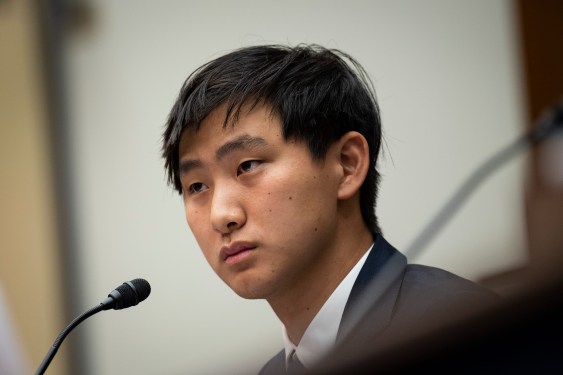Meta invested $14.3 billion in the data vendor Scale AI in June, bringing on CEO Alexandr Wang and several of the startup’s top executives to run the new Meta Superintelligence Labs. Despite this significant investment, the relationship between the two companies is already showing signs of strain.
At least one of the executives Wang brought over to help run MSL, Scale AI’s former Senior Vice President of GenAI Product and Operations Ruben Mayer, has departed Meta after just two months with the company. Mayer spent roughly five years with Scale AI across two separate periods. During his short time at Meta, he oversaw AI data operations teams and reported to Wang, but was not selected to join the core TBD Labs unit, which is tasked with building AI superintelligence and where top researchers from OpenAI have landed.
Furthermore, TBD Labs is working with third-party data vendors other than Scale AI to train its upcoming AI models. Those vendors include Mercor and Surge, two of Scale AI’s largest competitors. While AI labs commonly work with multiple data vendors, it is rare for a lab to invest so heavily in one particular provider. This situation is especially notable because, despite Meta’s multi-billion-dollar investment, several sources indicate that researchers within TBD Labs view Scale AI’s data as low quality and prefer to work with Surge and Mercor.
Scale AI initially built its business on a crowdsourcing model that relied on a large, low-cost workforce for simple data annotation tasks. However, as AI models have grown more sophisticated, they now require highly-skilled domain experts such as doctors, lawyers, and scientists to generate and refine the high-quality data necessary for improvement. Although Scale AI has attempted to attract these experts through its Outlier platform, competitors like Surge and Mercor have been growing quickly because their business models were built from the outset on a foundation of high-paid, specialized talent.
A Meta spokesperson disputed claims that there are quality issues with Scale AI’s product. Both Surge and Mercor declined to comment. When asked about Meta’s increasing reliance on competing data providers, a Scale AI spokesperson referred back to the initial announcement of Meta’s investment, which highlighted an expansion of the commercial relationship between the two companies.
Meta’s deals with other data vendors suggest the company is not relying exclusively on Scale AI, even after its massive investment. The same cannot be said for Scale AI, however. Shortly after Meta’s investment was announced, both OpenAI and Google said they would stop working with the data provider. Following the loss of these major customers, Scale AI laid off 200 employees in its data labeling business in July. The company’s new CEO, Jason Droege, attributed the layoffs in part to shifts in market demand. He indicated that Scale AI would increase staffing in other areas, including government sales, noting that the company had just secured a $99 million contract with the U.S. Army.
Some initially speculated that Meta’s investment in Scale AI was primarily a strategy to recruit Alexandr Wang, a founder with extensive experience in the AI space since Scale’s inception in 2016, who appears to be helping Meta attract top AI talent. Beyond Wang, however, questions remain about how valuable Scale AI truly is to Meta. One current MSL employee noted that several of the Scale executives who joined Meta are not working on the core TBD Labs team, similar to Mayer’s situation. Additionally, Meta is not exclusively using Scale AI for its data labeling work.
Meanwhile, Meta’s AI unit has become increasingly chaotic since bringing on Wang and a wave of new researchers, according to two former employees and one current MSL employee. New talent from OpenAI and Scale AI have expressed frustration with navigating the bureaucracy of a large company, while members of Meta’s previous GenAI team have seen their scope reduced.
These tensions suggest that Meta’s largest AI investment to date may be off to a rocky start, despite being intended to address the company’s AI development challenges. After the lackluster launch of Llama 4 in April, Meta CEO Mark Zuckerberg grew frustrated with the company’s AI team. In an effort to turn things around and compete with leaders like OpenAI and Google, Zuckerberg moved quickly to strike deals and launched an aggressive campaign to recruit top AI talent.
Beyond Wang, Zuckerberg has successfully brought in researchers from OpenAI, Google DeepMind, and Anthropic. Meta has also acquired AI voice startups Play AI and WaveForms AI, and announced a partnership with the AI image generation startup Midjourney. To power these ambitious AI projects, Meta recently announced several massive data center buildouts across the United States. One of the largest is a $50 billion data center in Louisiana named Hyperion, after a titan in Greek mythology.
Wang, who does not have a background as an AI researcher, was viewed as an unconventional choice to lead an AI lab. Zuckerberg reportedly held talks with more traditional candidates to lead the effort, such as OpenAI’s chief research officer Mark Chen, and attempted to acquire the startups of Ilya Sutskever and Mira Murati. All of them declined.
Some of the new AI researchers recruited from OpenAI have already left Meta, according to previous reports. At the same time, many longtime members of Meta’s GenAI unit have departed in response to the organizational changes. MSL AI researcher Rishabh Agarwal is among the latest to leave, posting on social media that while the pitch from Zuckerberg and Wang was compelling, he ultimately decided to follow Zuckerberg’s own advice about taking risks.
Director of product management for generative AI Chaya Nayak and research engineer Rohan Varma have also recently announced their departures from Meta. The central question now is whether Meta can stabilize its AI operations and retain the talent necessary for its future success.
MSL has already begun work on its next-generation AI model. Reports indicate the company is aiming to launch it by the end of this year.

